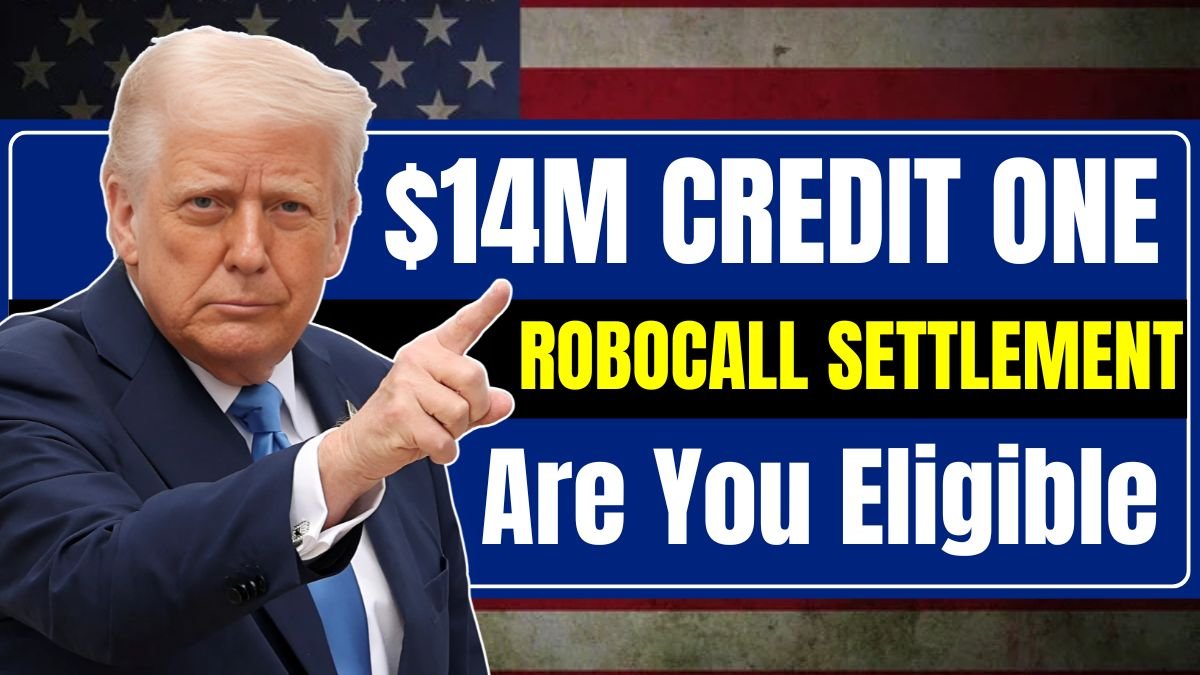$14M Credit One Robocall Settlement – While modern technology has made life easier, its misuse has also caused a lot of trouble to common consumers. One such case recently came to light where Credit One Bank was accused of violating the federal Telephone Consumer Protection Act (TCPA). The allegation was that the bank made automated (robocalls) calls to consumers without their permission, which is a clear violation of TCPA rules.
Under the TCPA, any company is prohibited from making pre-recorded or automated calls without the consumer’s permission. But Credit One Bank was accused of calling millions of consumers between 2014 and 2019 from whom they had not taken any prior consent.
Who is Credit One Bank and why did it come into controversy?
Credit One Bank is a major credit card company based in Paradise, Nevada, USA. It specifically targets people who have a low credit score or who do not have a credit history. This bank, which gives cards to consumers with low credit scores, suddenly came into the news when a class action lawsuit was filed against it for TCPA violation.
The lawsuit claimed that the bank contacted consumers through an automated calling system – even when they had not given permission to do so. Many consumers reported that they continued to receive such calls even though they had not given any such request or consent.
$14 million class action settlement – what’s in it for you?
The bank did not fully admit to the allegations, but decided to settle for $14 million to avoid legal proceedings and controversy. This is a class action settlement that will benefit all consumers who received automated calls from Credit One Bank or its affiliates between 2014 and 2019 – without prior consent.
Under this settlement, consumers will receive cash compensation. How much money each person will receive will depend on how many people file a claim in total. According to some estimates, class members could receive up to $1,000 – provided they can provide some proof that they received robocalls.
What is the process for getting compensation?
If you received robocalls from Credit One, you can be part of this settlement. If you have phone records, call logs or any other evidence to prove that the bank called you, it will increase the validity of your claim and you may get more compensation.
However, those who do not have direct proof can still make a claim – but they may get a lesser amount. The official settlement website is not live yet, and neither the last date to fill the form or the final court hearing date has been announced. So you are advised to keep checking regularly for updates.
Are you eligible? Know Eligibility
You may be eligible for this settlement if:
- You received an automated call (robocall) from Credit One Bank or one of its affiliates between 2014 and 2019
- and you did not give prior permission to receive such calls.
- If this situation applies to you, then this settlement may be beneficial for you.
What can be learned for the future?
This case is a great example of how companies can be held legally accountable if they contact consumers without their permission. Laws like the TCPA are designed to protect consumers’ interests, and this case also proved that if you speak up for your rights, you will definitely get justice.
What to do now?
If you think you have received such calls, start checking your old call logs and phone records now. If possible, contact a class action lawyer who can explain the process to you.
As soon as the official settlement website is launched, you will need to fill out and submit the claim form. You can also subscribe to the class action newsletter to get all the important updates on time.
Conclusion: Know your consumer rights and avail compensation
This class action lawsuit against Credit One Bank is an important example of how companies can pay a heavy price for calling consumers’ personal numbers without their permission. Laws like TCPA are designed to protect consumer privacy, and this case proved that if a company violates these laws, legal action is possible against it.
If you have also received unsolicited, automated calls from Credit One Bank or any of its affiliates between 2014 and 2019, and you did not give any permission for this, then this is the opportunity to file your claim for compensation. Whether you have concrete evidence or not, you can still participate in this process.
With caution, awareness and timely action, you can not only get the money you are entitled to, but can also send a strong message to such companies that any action without the consent of consumers will no longer be tolerated. Cases like these also teach us that it is important to be aware of your rights and raise your voice in time.
Finally, if you are eligible, keep an eye on updates, fill in the claim form and complete the legal process on your end – so that you get the compensation you deserve.
FAQs:
Q. What is the Credit One Bank lawsuit about?
A. Credit One Bank allegedly violated the TCPA by making robocalls without consumer consent between 2014 and 2019.
Q. How much is the settlement?
A. $14 million has been allocated for the settlement.
Q. Who is eligible to file a claim?
A. Anyone who received an automated call from Credit One Bank or its affiliates from 2014 to 2019 without prior consent.



